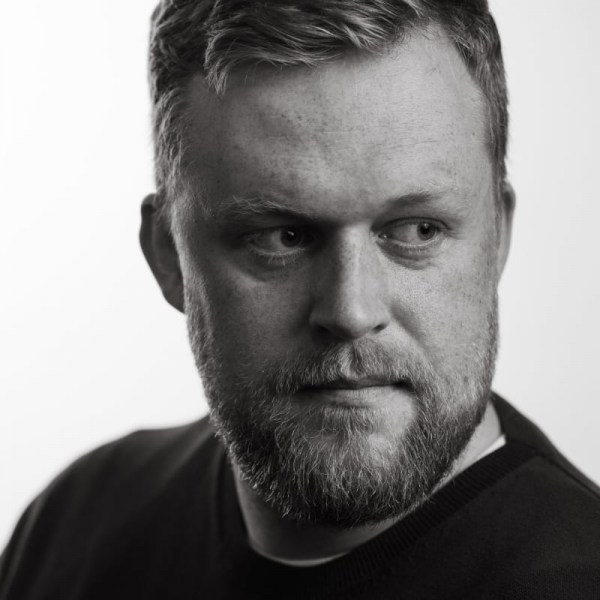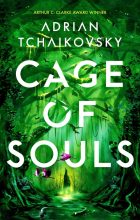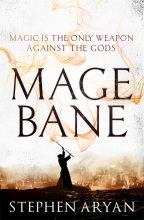Chapter 1 - Breaking Bread
It seemed the world just hated certain people. Mutta stumbled around the kitchen like a chicken with no head, clanking pots, burning skin and food alike while a trail of damage stalked behind her. Cooking smells were lost to fume and fire, and everything that could go wrong was going wrong.
It amazed Abika that someone as old as Mutta hadn’t mastered simple tasks like cooking. She had just opened her mouth to say as much when Mutta spun towards her, that long nose following shortly after.
“The bread!” squawked Mutta. “It’s burning!”
Abika stood defiantly. “Of course it is.” Mutta never stopped moving. It made her hard to predict, so Abika just assumed she was in a bad mood all the time. Which was mostly true anyway.
“There are those—” Mutta lifted a huge pot of boiling vegetables. “who eat the bread, girl. And those who make it.” Abika watched her struggle with the pot, pouring the steaming water into a deep basin. After a long moment of saving tubers and carrots from a mushy fate, she turned to Abika red-faced and sweating. “I think we both know which you are to be.”
“Why make bread, when you can just eat it?” The logic felt flawed somehow, but it was more important to Abika to have something to send back. She couldn’t just stand there and be bullied. Mutta shook her head and turned away, muttering.
Aki’s hand touched Abika’s shoulder, his heavy clay ring warm against her neck. “Daughter,” he whispered, “must we fall out every mealtime? It gets tiresome.”
“Yes. I know.” Abika pursed her lips together to hide the smile.
Aki was not the biggest man Abika knew, but he was the strongest. He could also be as soft as a woman. “Do as Mutta tells you. Now.”
“She’s not my mother.”
“And I am not your father, and yet you are our daughter and you will heed us.” Aki glowered at her. “These are the rules of the Avere.”
Abika plucked her response from a full basket ready and waiting. “Avere children are given a namesake to pass on knowledge aren’t they? Well, my name was given by another. My mother.” She stared at Mutta, still skipping around like her apron was on fire. “My real mother.”
It was Aki’s turn to stand defiantly now. Those usual wrinkles that appeared when he laughed, very much hidden. “Don’t quote the rules to me, child.”
Abika cast her eyes down. “She is not my mother.”
Aki’s expression didn’t change, those greying eyebrows no longer betraying him, but the grip on her shoulder tightened ever so slightly. “Still, girl, she loves you just the same. As we all do.” He nodded at the basement trapdoor tucked into the kitchen corner. “Now move.” The softness disappeared in those final words, then his eyes darted to the sides and his voice rose. “And be quick about it!” He left her with a quick wink.
Abika scowled as hard as she could, then turned and descended down the short ladder into the low basement. Almost bent over double she scurried about in the musty air until she found the oven’s bottom. Aki once said that the ancient oven was built first and the commune grew around it as more and more children came to live here. Children like her, with no parents, no home, and no possessions. Abika opened the bottom drawer and found the latest breads. Five loaves, well-fired to kill the weevils within.
Abika was twelve now, but she could still remember the smell of good bread, which was something she rarely ate in this house.
“BREAD!” roared Mutta from the kitchen above.
“It’s coming!” growled Abika. She grabbed two dark loaves, one in each hand, then stood and cracked her head on the underside of the stone roof, cursing and damning the bloody birdwoman back to her bloody cage. “It’s bloody coming!”
“Thank you,” said the kitchen worker Meorith from the top of the ladder. “You made it then?”
Abika rubbed her head. “Yes, I made it, you bloody—”
“Ah, ah, come on now, Bee,” said Meorith, pulling the other loaves from the oven drawer. “None of that. What’s the matter? Did you bump your head?”
Abika bit her tongue and forced a smile.
Meorith smiled warmly back at her. “See, back to your normal self already. No one likes to get bread, but until you find yourself wearing an apron like this one you may as well grow a callus on your scalp.” She began walking away. “It’s the only way you’ll survive.” Meorith tapped her own head to drive the point home.
“And I suppose that will be my lot in life? To be a—” The trapdoor fell shut. “To be a bloody kitchen maid?” The last words were muttered in the dark. There was no one around her. In fact, there was never anything around her, except routine and hopelessness. She threw one of her loaves onto the ground and it shattered like it was made of charcoal and chalk. She hated this. She hated all of it.
“You made it then?” said Mutta, once Abika had ascended. “I’ll take that. Burned. Of course. Do you destroy everything you get your hands on Abika?”
Abika rubbed her head. “You’re welcome.”
“Where are the others?”
“Meorith took—”
Mutta dropped a heavy board on the kitchen’s wooden side, cutting Abika off, then handed her a large bread knife. “Here, make yourself useful and get slicing.” Then she was stirring and buzzing about the kitchen again.
Abika stared at the knife for a long moment. Was it a weapon, a tool? It just depended on what direction she was holding it. She started sawing.
“I know I’m not your mother,” said Mutta.
Abika focused intently on the bread.
“The whole of this commune knows it, child. As Aki earns his name for the role he brings, I earn the name Mutta because I look after you, all of you. We are mother and we are father.” She pulled her necklace out from her shirt and kissed the shining stone, murmured a prayer then put it back.
That crystal must surely have been worn out by now, the amount of times Mutta had kissed the thing. “Wait! He told you?”
“Yes he told me!” she said, pointing the spoon and splashing Abika with soup. “You said I am not your mother. Twelve cycles it’s been, child, and you still haven’t realised that I hear everything. Twelve cycles of food, warmth and shelter. I may not have birthed you, but I damned well earned the title. And while I’m at it, don’t talk down to your father.” Her eyes were fierce, but there was a hint of begging in there. She wanted Abika to talk back, she wanted a fight.
Abika folded her arms and waited for the air between them to thin. “I want to work in the kitchen.”
Mutta shrugged. “This is a kitchen.”
“No, this is a pantry with a gas stove. Meorith is—”
“Older than you.” Mutta blinked slowly, then turned back to the pot. “And more respectful.”
“Meorith is a suck-up.”
“Well, it works for her. And for me.”
Bitterness filled Abika’s mouth. She wanted to take that bloody spoon and whack Mutta around the head with it. She pointed the tip of the breadknife towards Mutta’s back. It would only take a few steps. How hard would she have to lunge? Cutting meat was one thing…
“Until you respect me, child, you’ll never work in the kitchens. You will stay in this pantry of yours while the rest of the children earn their keep.” She paused the clinking of her big spoon in the hope she would hear some sort of challenge, but Abika would not give it to her. She would never give this woman what she wanted. “Besides, child, the kitchens are for the more mature children. There are many hazards in there that—”
“I am not a stupid little girl, I can look after—”
Mutta spun, holding the ladle out like a sword. “And THAT is why you will never grace those walls, child. Because you don’t respect us!” Mutta glanced at the knife held out in her direction. “We know what the trials of life have to offer, for we have been through them. We know how to navigate those waters, because we have done it already.” Aki appeared at the door, and something unreadable passed between them.
“You should listen to her, Abika. There is logic to what she says.”
“Logic?”
“Don’t back-chat, child!” snapped Mutta, splattering soup everywhere.
Abika felt the sting of tears behind her eyes, but she would not cry. Not here. Not in front of these people. She swallowed it back and straightened her shoulders.
Aki broke the silence. “Freja. We will need to do a town-run soon. I’m running short of burn stones. And the gas pipes…They are corroded.”
“It’s spread?”
Aki nodded.
“You said it was safe!”
Aki sighed. Clearly he had been dreading having this discussion. His gaze flickered towards Abika before he answered. “Well, it isn’t safe. Not anymore. We cannot ride out this winter with faulty pipes, and I cannot fix them without supplies. We’ve still two months of the cold.” Mutta turned to him, and he stepped towards her. “It’ll be the last for a few months.”
Mutta held the spoon above the pot. She always held herself strong. That strong jaw, high cheeks, and dark hair that seemed to stay up regardless of the activity. The spoon shook.
“Freja?”
Mutta threw the spoon back into the soup. “We will have to do without new pipes, my heart. We cannot afford them, and we cannot leave a family of twelve to fend for themselves against anything that may decide to creep along the shoreline.”
“The shoreline? Freja, when was the last time anyone came out this far? The bay is safe. We are safe.”
“How do you know that for sure, Jekob? I asked you to put up fences, I asked you to dig pits. None of which you have done. And the amount of trips you’ve made to town this past cycle…surely you must have the supplies somewhere to fix the pipes? What else is there to do in Ipor Dan really?” She waited for him to answer.
“I wouldn’t ask if I didn’t think it necessary.” Aki looked sullen, but he spoke softly. “And don’t make this about me, Freja.”
“As you say,” said Mutta.
Abika wished she had that ability to calm herself like Aki did—maybe she and Mutta would have gotten on better.
Aki cleared his throat. “So, this is your word?”
“It is my word.” Another pause. Then the hands went on the hips. Aki had no chance. “We will wait until the warmer months.”
“As you say,” said Aki. He glanced at Abika, then turned and left the pantry kitchen.





 Listen on Audible
Listen on Audible

